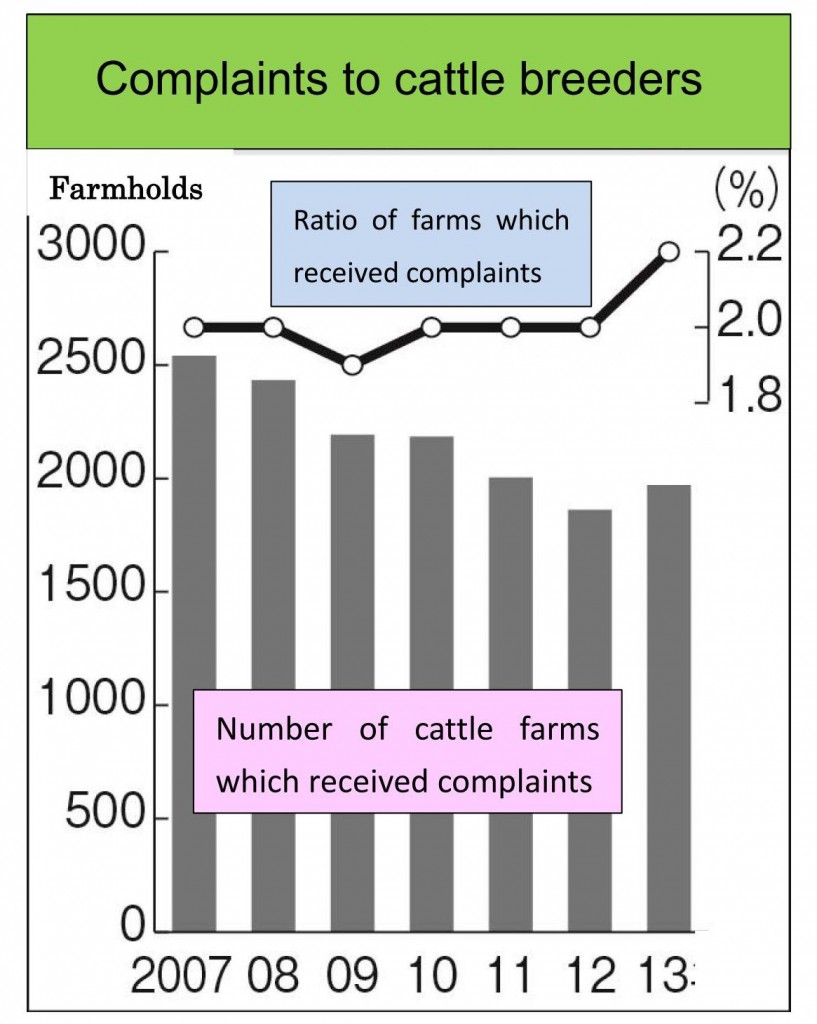Odor control has now become one of the biggest concerns for cattle breeders. According to the agriculture ministry, roughly 2,000 cattle farms nationwide received complaints from residents in their neighborhood in 2013, up some 100 from the previous year, out of which 60 percent were related to odor. Although farmers are taking various measures to reduce malodors, the number of complaints does not decline as they expect, as more housing developments encroach on agricultural lands. The task is becoming even harder as the government strengthened regulations on odor emissions.
The ministry survey showed that 1,970 farms received complaints in 2013, with the largest percentage – 61 percent – related to odor, followed by 22.4 percent related to water pollution, 4.6 percent over harmful insects and 12 percent over other reasons.
The ratio of farms which received complaints among total number of farms was 2.2 percent, increasing gradually from 1.9 percent in 2009 and around 2 percent between 2010 and 2012.
Thanks to technological developments, farms’ efforts to cope with environmental concerns, especially odor, are increasingly proving successful, the ministry says. Some farms are even cutting down the number of cattle to reduce odor. Still, the number of complaints fails to decrease, as more houses are built close to farms and cattle farms are increasing their size amid harsher business conditions such as rising feed prices.
Regarding odor control, more local governments have introduced stricter regulations. The Offensive Odor Control Act originally used the density measurement of 22 malodorous substances to decide whether to make operators subject to regulation. However, in 1995, the act was revised to enable local governments to choose between the original system and the system of odor index regulation using the human sense of smell. As of fiscal 2012, a total of 428 local governments adopted the new system which is based on the human sense of smell and tends to make more operators subject to regulation.
The ministry says not a few farms are forced to consider moving to different locations amid rising number of complaints and stricter regulations.
The ministry plans to boost efforts to support the farms, such as coming up with the most appropriate odor control method for them, as there are various ways to reduce malodors being developed, such as using photocatalyst, soil or pumices.
(Aug. 23, 2014)


